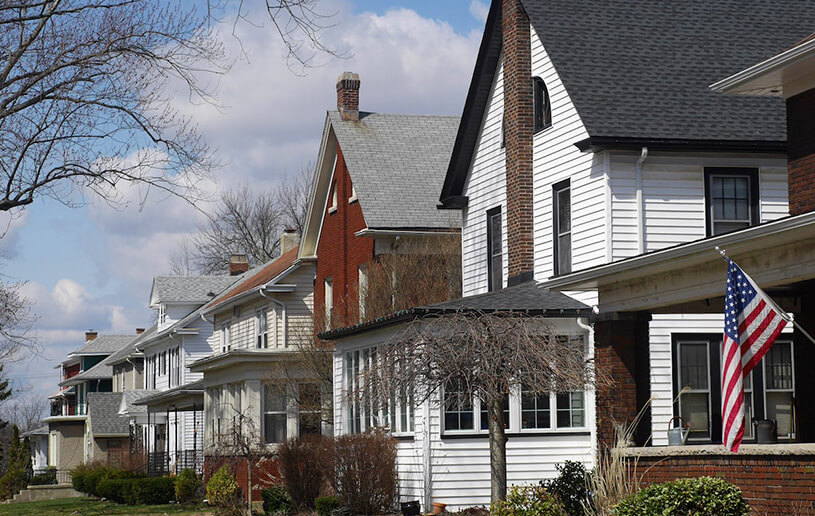It's great to be home!
Find Your Residence
Home
4 Things You Might Not Know About Affordable Housing

Trusted by Thousands of Users
Lorem ipsum dolor sit amet, consectetur adipiscing elit. Ut elit tellus, luctus nec ullamcorper mattis, pulvinar dapibus leo.




Widest Properties Range
Lorem ipsum dolor sit amet, consectetur adipiscing elit. Ut elit tellus, luctus nec ullamcorper mattis, pulvinar dapibus leo.




Low Income
Lorem ipsum dolor sit amet, consectetur adipiscing elit. Ut elit tellus, luctus nec ullamcorper mattis, pulvinar dapibus leo.




Search by Neighborhoods
Lorem ipsum dolor sit amet, consectetur adipiscing elit. Ut elit tellus, luctus nec ullamcorper mattis, pulvinar dapibus leo.




Wealthy homeowners benefit the most from federal housing subsidies
Let's start off with the most surprising – but true – fact about affordable housing: the bulk of federal housing subsidies don't actually support affordable housing. In fact, they disproportionally support wealthy homeowners. That's thanks to the Mortgage Interest Deduction (MID), which allows homeowners to deduct interest paid on their mortgage(s) from their taxes. The larger a mortgage you have, or the more homes you have, the more you’ll be able to deduct.




Affordable housing does not lower property values
Research shows conclusively that affordable housing has no negative impact on home prices, or on the speed or frequency of sale of neighboring homes. Trulia has done extensive research on this across the country. They examined the nation’s 20 least affordable markets, analyzing over 3,000 projects with units for low-income earners over a 10-year period. As a whole, there was no significant effect on home values located near a low-income unit.




Affordable housing helps taxpayers and builds stronger, more vibrant communities
It’s simple math: the more housing costs eat up your income, the less you have to invest elsewhere. For folks who need to spend more than a third of their income on housing, things like healthcare, nutritious food, education, transportation, saving for the future, and investing in the local economy get harder to pay for.




Affordable housing is needed everywhere
Everyone should be able to afford a safe, stable home in the town where they work and where their kids go to school. A lack of affordable housing impacts many people who make communities successful: employers, seniors, immigrants, low-wage or entry-level workers, firefighters, nurses, military personnel, teachers, etc.




Wealthy homeowners benefit the most from federal housing subsidies.
Let's start off with the most surprising – but true – fact about affordable housing: the bulk of federal housing subsidies don't actually support affordable housing. In fact, they disproportionally support wealthy homeowners. That's thanks to the Mortgage Interest Deduction (MID), which allows homeowners to deduct interest paid on their mortgage(s) from their taxes. The larger a mortgage you have, or the more homes you have, the more you’ll be able to deduct.




Affordable housing does not lower property values
Research shows conclusively that affordable housing has no negative impact on home prices, or on the speed or frequency of sale of neighboring homes. Trulia has done extensive research on this across the country. They examined the nation’s 20 least affordable markets, analyzing over 3,000 projects with units for low-income earners over a 10-year period. As a whole, there was no significant effect on home values located near a low-income unit.




Affordable housing helps taxpayers and builds stronger, more vibrant communities
It’s simple math: the more housing costs eat up your income, the less you have to invest elsewhere. For folks who need to spend more than a third of their income on housing, things like healthcare, nutritious food, education, transportation, saving for the future, and investing in the local economy get harder to pay for.




Affordable housing is needed everywhere
Everyone should be able to afford a safe, stable home in the town where they work and where their kids go to school. A lack of affordable housing impacts many people who make communities successful: employers, seniors, immigrants, low-wage or entry-level workers, firefighters, nurses, military personnel, teachers, etc.
About us
Our nonprofit organization helps recognize issues that families face when searching for affordable housing, and streamlines the options into one medium, providing an easier path for those in need of affordable housing. Additionally, we educate our members and community on the housing crisis facing our state, while giving exposure to possible solutions


Find what you are looking for
Did you know?
72% of Homeless Californians were not sheltered in 2020
3.5 million new housing units are needed by 2025 to deal with the housing shortage
128, 777 Californians are homeless
180,000 houses were needed in the last calendar year to keep up with growing demand. California failed to meet that margin by 80,000 units
Our campaign is made possible by grassroots donors coming together to turn bold vision into big action.
Donate any amount today to join the movement.
Read Our Reviews

Marvin McKinney

Albert Flores

Robert Fox



















